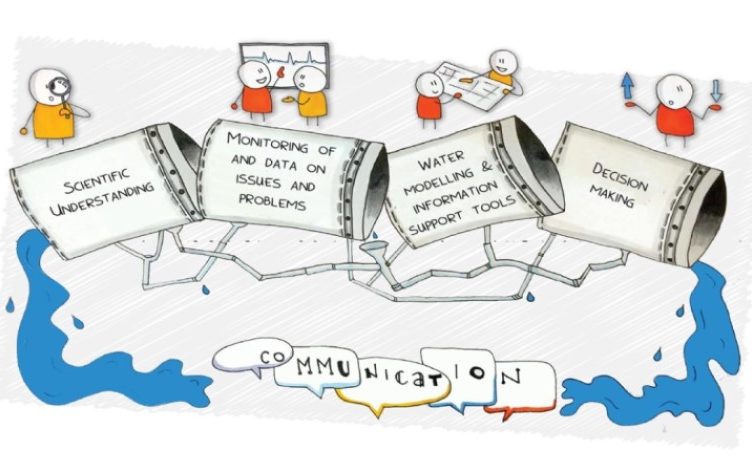
05/12/2024
Event Summary: Overview of water quality modelling projects from the Queensland Water Modelling Network with Callym Dunleavy
Read more
Fifty-eight participants joined us for an end-of-day briefing on climate change data and information at our sixth Community of Practice (CoP) event for the year at the Queensland Government’s Ecosciences Precinct.
It is clear that, regardless of our professional role and responsibilities, the need to access and use projected climate change data and information is becoming more frequent in our planning, management, research and communication needs.
Participants at the event – a mix of postgraduate research students and water utility, state and local government and consultant colleagues – flagged that 45% of them sought out this type of data each week. The type of climate data and information they look for includes:
Further details on these demands and their specific applications are detailed in the Mentimeter report, available to download here.
Our specialist advisers for this event, Dr David Rissik, Senior Principal Climate Change Adaptation at BMT, and Dr Ralph Trancoso – Research Fellow at The University of Queensland and Climate Scientist at the Queensland Government’s Department of Environment and Science, detailed a pathway that water professionals can follow to seek out climate data.
In David’s presentation, he highlighted that in Australia organisations such as the Bureau of Meteorology (BoM), CSIRO, state agencies and various research collectives provide access to climate change data though numerous web and data portals. He noted that the application and use of the data and information continues to evolve. David explained that various adaptation planning frameworks or risk-based approaches are ideal tools to better understand and evaluate the future impacts of climate change. To enable such applications, support from other colleagues and ongoing knowledge sharing, learning and communication is vital.

In Ralph’s presentation, we were taken on a tour of the high-resolution climate projections housed in the Long Paddock website. At the Queensland Future Climate Dashboard, through six climate themes with 32 variables, a user can compare various future projected patterns as either an annual or various seasonal period. He said that the team at DES continue to expand the availability of climate information as the application and input into other forecasting and modelling tools is reliant on sound localised information.

The event highlighted a strong desire to continue more detailed and deeper dives into the availability and application of the various climate data and information. In 2020, we will continue to explore this theme in new CoP events.